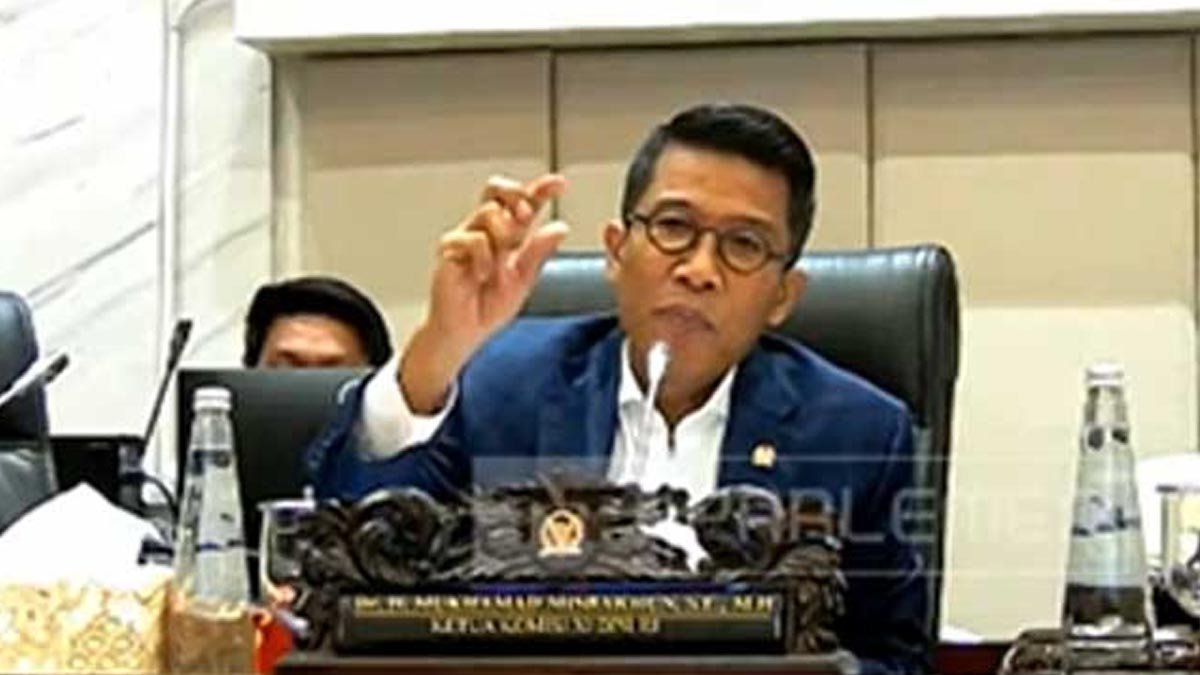PALMOILMAGAZINE, JAKARTA – Chairman of Commission XI of the Indonesian House of Representatives (DPR RI), Mukhammad Misbakhun, has raised concerns over the budget cycle mechanism and the reduction of palm oil export levies managed by the Palm Oil Plantation Fund Management Agency (BPDP-KS). During a hearing with BPDP, Misbakhun questioned the transparency of fund allocation and the agency’s IDR 3 trillion budget deficit in 2022.
Misbakhun highlighted that palm oil export levy revenues, which reached IDR 32 trillion in early 2022, were not deposited into the state budget (APBN) but were directly managed by BPDP. “This mechanism is unusual because exporters pay levies based on the Export Declaration (PEB) or production volume, yet the funds do not enter the APBN. There must be greater accountability,” he stated during the DPR RI Commission XI hearing with BPDP, monitored by Palmoilmagazine.com on Monday (February 17, 2025).
He also questioned BPDP’s IDR 3 trillion budget deficit, despite biodiesel program spending totaling only IDR 5.8 trillion in the same year. “How did this deficit occur? Is there a mismatch between revenue and fund allocation?” he asked.
Also Read: Indonesia Economic Summit (IES) 2025: Sustainable Growth Depends on Three Key Factors
Despite his criticism, Misbakhun acknowledged BPDP’s role in funding the biodiesel program, calling it a strategic initiative. “Biodiesel development reduces reliance on fossil fuel imports, stabilizes exchange rates, and curbs foreign currency demand,” he explained. However, he requested clarification on the pass-through funding mechanism for biodiesel, including who has the authority to determine allocations.
Another major concern was the government’s decision to lower the palm oil export levy rate from 11% to 7.5% under the 2023 Minister of Finance Regulation (PMK). According to Misbakhun, this move contradicts the state’s need for revenue, especially when BPDP is facing a deficit. “At a time when the country needs funds, the levy is reduced. What is the rationale behind this decision? The palm oil sector controls vast land areas, yet its contributions to the state mainly come from property taxes and export levies. We must ensure this policy does not solely benefit corporations,” he emphasized.
Misbakhun demanded clear explanations from BPDP and the government regarding three key issues; The cause of BPDP’s budget deficit, the allocation mechanism for biodiesel funds, and the justification for reducing the palm oil export levy.
“We must ensure that public funds are utilized efficiently and do not become a burden on the state,” he concluded.
These questions are crucial, given BPDP-KS’s pivotal role in promoting palm oil downstream industries and the energy transition. Transparency remains key to ensuring that strategic programs are not hindered by budgetary controversies. (P2)
